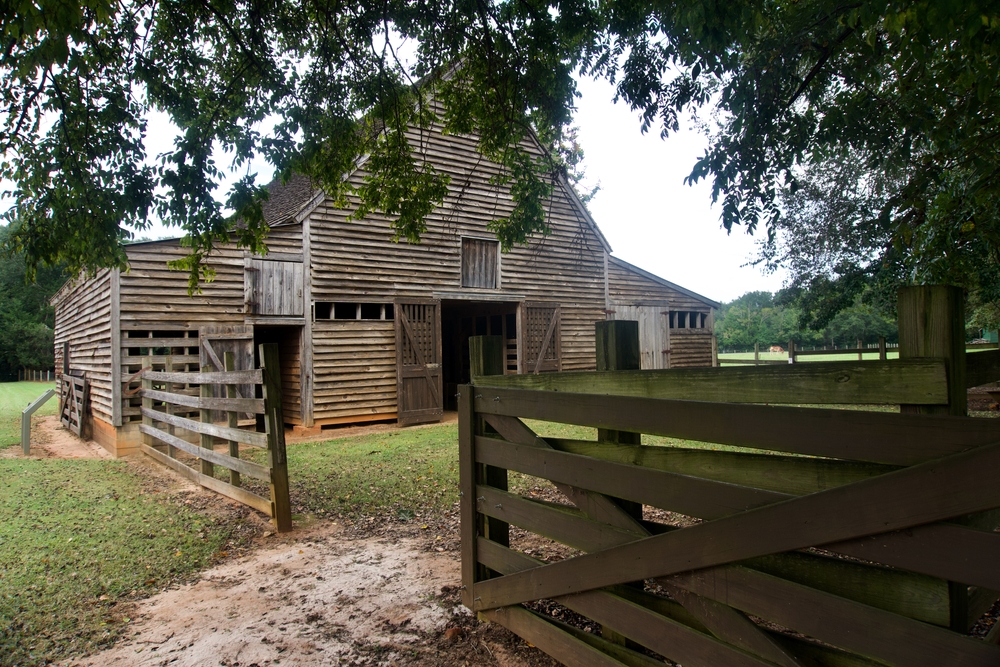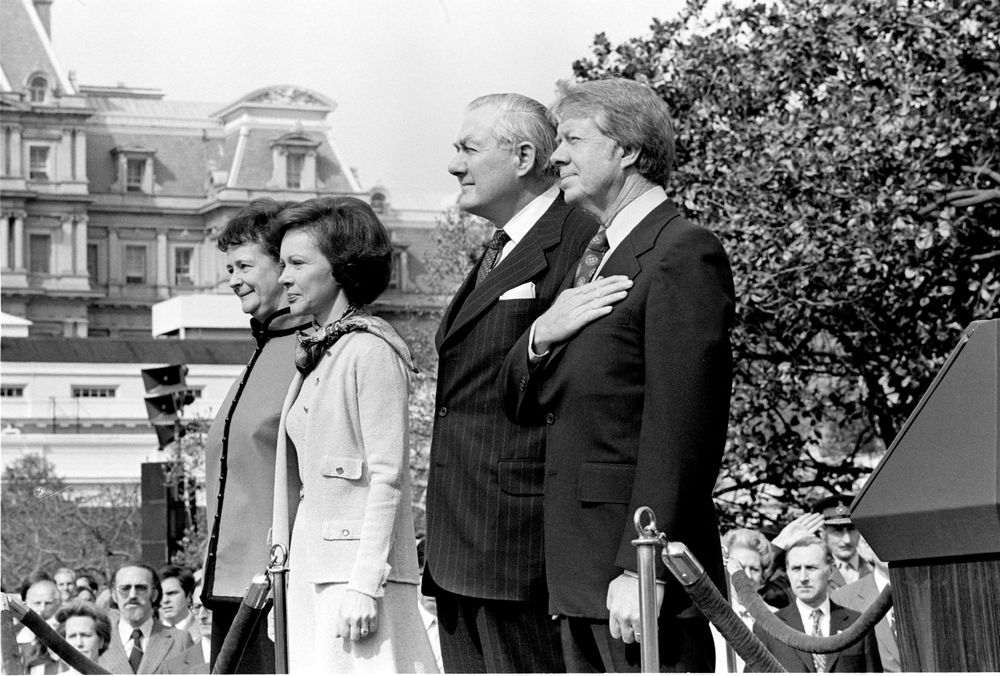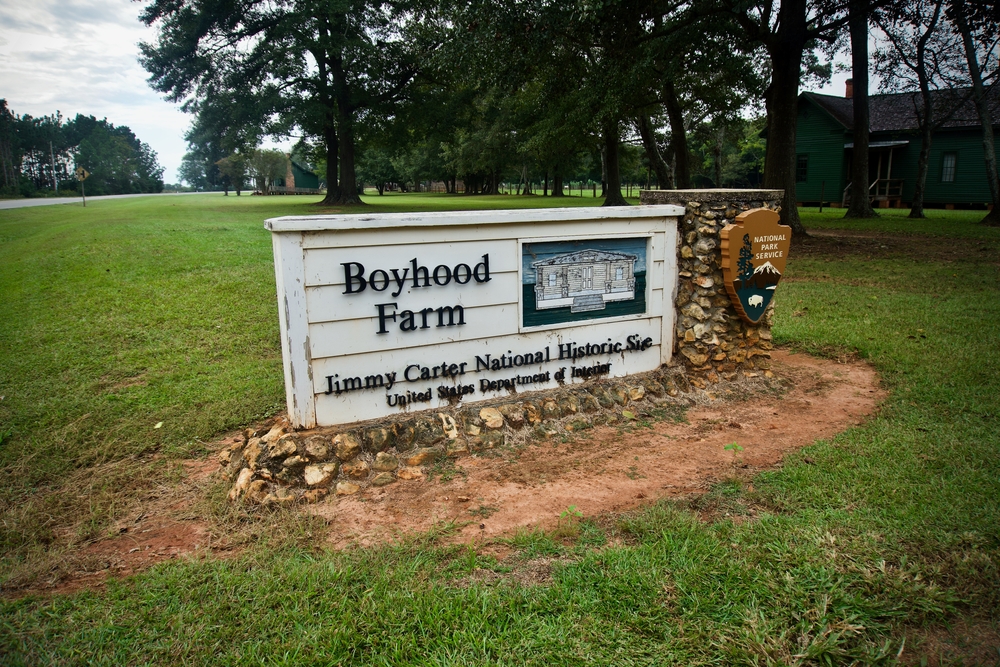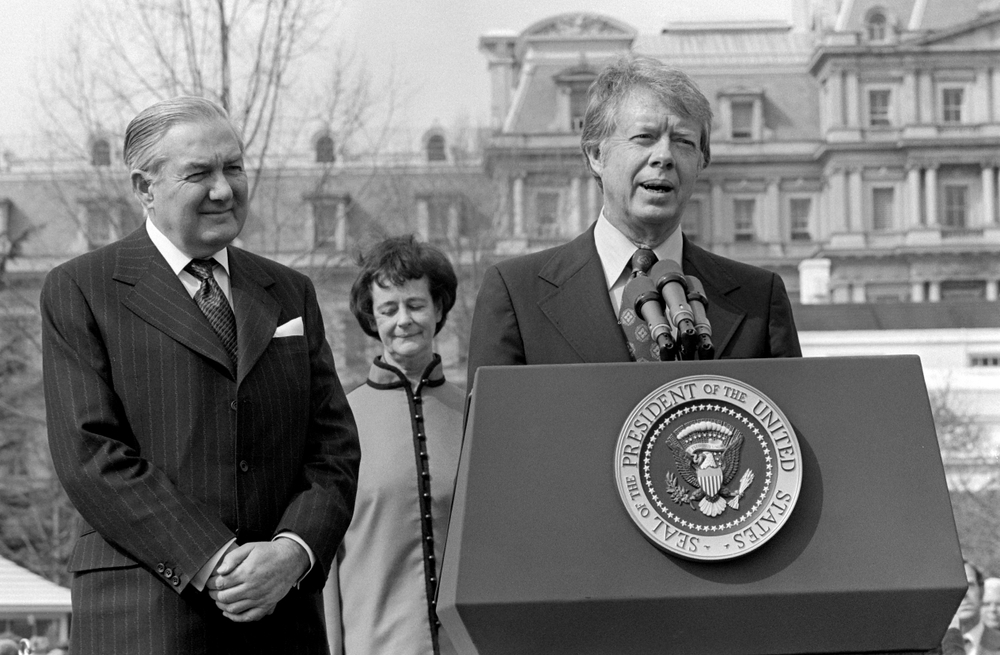As you explore the remarkable life of Jimmy Carter, you’ll discover a journey that began in the humble peanut fields of Georgia and led to the highest office in the land. From managing his family’s agricultural business to navigating the complexities of international diplomacy, Carter’s path was anything but ordinary. His presidency, marked by both triumphs and challenges, set the stage for an even more impactful post-presidential career. You’ll learn how Carter’s commitment to public service and humanitarian causes transformed his legacy, culminating in the creation of influential organizations like Habitat for Humanity. This story of a peanut farmer turned global philanthropist offers invaluable insights into leadership, integrity, and the enduring power of compassion.

From Peanut Farmer to President: Jimmy Carter’s Early Life and Career
Jimmy Carter’s journey from a small-town peanut farmer to the 39th President of the United States is a remarkable tale of perseverance and public service. Born in 1924 in Plains, Georgia, Carter grew up in a farming family during the challenging Jim Crow era of the American South. After graduating from the U.S. Naval Academy in 1946, he served in the Navy, where he rose to the rank of lieutenant and was selected for the prestigious nuclear submarine program.
Return to Roots and Political Beginnings
Following his father’s death in 1953, Carter made the pivotal decision to resign his naval commission and return to Georgia. He took over the family’s farming business, operating Carter’s Warehouse, a seed and farm supply company. This experience would later shape his understanding of agricultural issues and rural America.
Rise in Georgia Politics
Carter’s leadership qualities quickly became apparent as he served on various county boards. In 1962, he won election to the Georgia Senate, marking the beginning of his political career. Despite losing his first gubernatorial campaign in 1966, Carter persevered and successfully became Georgia’s 76th governor in 1971. His time as governor and subsequent role as the Democratic National Committee campaign chairman in 1974 laid the groundwork for his presidential aspirations.
The Road to the White House
In 1976, Carter launched his presidential campaign, positioning himself as a political outsider and promising to restore America’s virtue in the wake of the Vietnam War and Watergate scandal. His unique background as a peanut farmer and naval officer resonated with voters, propelling him to victory and marking the beginning of a new chapter in American politics.

The Presidency of Jimmy Carter: Triumphs and Challenges
Foreign Policy Achievements
Jimmy Carter’s presidency was marked by significant diplomatic successes. His commitment to human rights as a cornerstone of U.S. foreign policy set a new standard for international relations. Carter’s crowning achievement was the Camp David Accords, a historic peace agreement between Israel and Egypt that he personally mediated. This diplomatic triumph demonstrated Carter’s skill in navigating complex international disputes.
Domestic Struggles and Energy Policy
On the home front, Carter faced numerous challenges. He inherited an economy plagued by high inflation, rising unemployment, and an energy crisis. Despite these obstacles, Carter made significant strides in energy policy. He created the Department of Energy, invested in renewable energy research, and implemented measures to reduce U.S. dependence on foreign oil. These efforts helped lower oil imports and increase domestic production.
Legacy and Post-Presidency
While Carter’s presidency ended after one term, his post-White House years have been defined by extensive philanthropic work. He founded the Carter Center, which has been involved in over 100 election monitoring missions and efforts to eradicate diseases. This dedication to public service has reshaped perceptions of his legacy, highlighting his integrity and commitment to making a positive impact on the world stage.
Life After the White House: Carter’s Humanitarian Legacy
The Carter Center: A Global Force for Good
After leaving office in 1981, Jimmy Carter redefined the role of a former president by dedicating himself to humanitarian causes. In 1982, he and his wife Rosalynn founded the Carter Center, a non-profit organization focused on advancing human rights, resolving global conflicts, and improving health worldwide. This institution became the cornerstone of Carter’s post-presidential legacy, allowing him to continue making a positive impact long after his time in the Oval Office.
Diplomatic Efforts and Global Health Initiatives
As a freelance ambassador, Carter mediated disputes between countries and observed elections, leveraging his experience to promote democracy and human rights globally. His efforts in conflict resolution and election monitoring were recognized with the Nobel Peace Prize in 2002. Additionally, the Carter Center spearheaded remarkable health initiatives, including a campaign to eradicate Guinea worm disease. This effort reduced cases from 3.5 million in 1986 to just 13 in 2022, showcasing the profound impact of Carter’s humanitarian work.
Habitat for Humanity and Local Engagement
Carter’s commitment to service extended beyond global initiatives. He and Rosalynn volunteered with Habitat for Humanity for over 35 years, helping build, renovate, and repair 4,390 homes in 14 countries. This hands-on approach to community service exemplified Carter’s dedication to improving lives at both local and international levels, solidifying his legacy as a compassionate leader committed to making a tangible difference in the world.

The Family Office Behind the Peanut Farm Empire
From Peanuts to Politics
Jimmy Carter’s journey from peanut farmer to president is a testament to his entrepreneurial spirit and family-oriented approach. Born in Plains, Georgia, Carter took over management of his family’s peanut farm in 1953 after leaving the Navy. This humble beginning laid the foundation for what would become a significant family business operation.
A Family Office with a Difference
While not a traditional family office, the Carter family’s peanut farming business served as the financial backbone for Jimmy’s political aspirations. The stable income from the farm likely provided the necessary support for Carter to pursue his political career, first as a Georgia State Senator in 1963 and later as Governor of Georgia from 1971 to 1975.
Transitioning from Business to Public Service
As Carter’s political career took off, the family business took a backseat. Upon becoming president in 1977, Carter made the unprecedented decision to sell his peanut farm to avoid any potential conflicts of interest. This move demonstrated Carter’s commitment to ethical leadership and set a new standard for presidential conduct.
Jimmy Carter’s Lasting Impact: A Lifetime of Service
A Champion for Human Rights and Peace
Jimmy Carter’s post-presidential years were marked by an unwavering commitment to humanitarian causes and global peace. His dedication to improving lives around the world earned him the Nobel Peace Prize in 2002, recognizing his outstanding commitment to human rights. Carter’s diplomatic efforts, including historic visits to North Korea and Cuba, showcased his willingness to engage with adversaries in pursuit of peaceful resolutions.
The Carter Center: A Global Force for Good
In 1982, Jimmy and Rosalynn Carter founded The Carter Center, an organization dedicated to advancing human rights, alleviating suffering, and promoting democracy. The Center’s impact has been felt in over 80 countries, with notable achievements including:
- Observing more than 100 elections worldwide
- Mediating conflicts in nations like Haiti and Liberia
- Spearheading efforts to eradicate diseases such as Guinea worm
Habitat for Humanity: Building Homes and Hope
Carter’s hands-on approach to charity work was exemplified by his 36-year partnership with Habitat for Humanity. Alongside over 106,100 volunteers, the Carters helped build 4,417 homes across 14 countries. Their dedication inspired countless others to join the cause, making affordable housing a reality for families in need.
Jimmy Carter’s legacy as a humanitarian and peacemaker continues to inspire generations, proving that a life of service can create lasting change long after leaving the highest office in the land.
Conclusion
In reflecting on Jimmy Carter’s remarkable journey, you’ve witnessed the transformation of a humble peanut farmer into a world leader and humanitarian. His family office, once centered on agriculture, evolved into a platform for global change. Carter’s presidency, while marked by challenges, laid the groundwork for his extraordinary post-presidential career. By selling his farm to avoid conflicts of interest, he demonstrated integrity that would define his later work. Today, Carter’s legacy extends far beyond politics, encompassing his tireless efforts with Habitat for Humanity and his foundation’s initiatives. His life serves as a testament to the power of principled leadership and the enduring impact one individual can have on the world.






